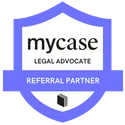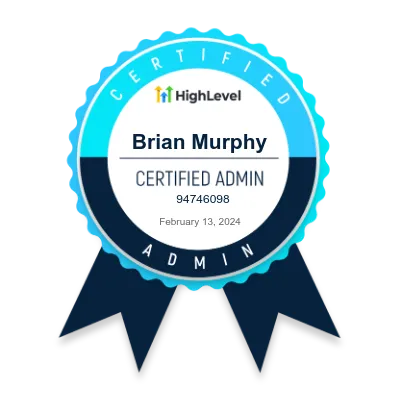
Mastering Google Ads for Law Firms
Lessons from Missteps in Google Ad Personal Injury Campaigns
Is Google Really Looking Out For You?
Google makes its money from online advertisers. So it’s safe to assume the changes they make will benefit advertisers. Right?
It turns out that isn’t always the case. While the big platforms do need to maintain a good advertiser experience overall, occasionally, decisions are made where individual advertisers are thrown under the bus in changes that are likely to move the stock price up.
You have to break a few eggs to make an omelette, so to speak. But with the right knowledge you can make sure your shell stays intact!
Is Google really looking out for the little guy? Join me in today’s podcast as we dive into the dark side of Google AdWords.
We’ll be talking about:
Revisiting “Legal Marketing Fastlane” [00:30]
Google AdWords and its search traffic changes: It’s just business [00:58]
Facebook and its acquisitions as a platform for selling impressions [04:16]
Notes on working with Google from the Legal Marketing Fastlane [07:07]
Why Google is not looking out for the little guy [07:55]
The issues with Google’s Search Network and landing pages [08:35]
Why the “Search Network with Display Select” setting is not the best campaign setting there is [10:26]
Narrator: [00:00:00] Welcome to The Law Firm Growth podcast, where we share the latest tips, tactics, and strategies for scaling your practice from the top experts in the world of growing law firms. Are you ready to take your practice to the next level? Let's get started.
Jan Roos: Hey, everybody. Welcome back to The Law Firm Growth podcast. I'm your host as always, Jan Bruce, and I'm here with a bit of a different type of episode here. So I'm actually revisiting. One of the chapters from my book, the legal marketing fast lane, which I originally published in 2017, some parts of it obviously held up better than others, but I wanted to review some of the material because I did try to focus this book on being some more, uh, timeless principles of marketing in addition to some pretty tactical stuff, but I was revisiting this because of a situation that we had in the agency really recently.
Jan Roos: So we ended up [00:01:00] actually working with a listener to the show. As a matter of fact, And it was on a personal injury campaign on Google AdWords. So personal injury is one of the first areas that we ever worked with. We've launched dozens of personal injury campaigns all over the country, and usually it had a pretty good track record of getting leads to come in within the first couple of days.
Jan Roos: So we ended up having an issue where we were really, really confused by some of the numbers that we were getting. So everything is search network traffic, which I always recommend, um, both for our clients and in the book, as a matter of fact, um, but there was some really awkward things that were happening with the traffic.
Jan Roos: The first thing that we noticed was that the click through rate. Which we'd expect with an absolutely 10 out of 10 ad, fantastic targeting to be probably three or 5%, as in three to five people out of a hundred would click was upwards of 10 or 15 percent for a lot of these keywords. And what was super baffling is that the one thing that we always hung our hat on as far as our AdWords campaigns is conversion.
Jan Roos: And that actually ended up going from what we usually expect for personal injury around 20 or 30 percent down [00:02:00] to less than 5%. So it was really, really odd. Um, we checked out the keywords, everything made sense, you know, best auto accident lawyer, trucking accident lawyer, Kansas city, that kind of thing, everything really matched up, but we were just completely baffled as to what was happening.
Jan Roos: So turns out we were actually speaking with one of our Google reps and he casually mentioned, Oh yeah, it's really interesting. I mean, like, you know, you, you have a, about like, um, 80 percent search partners traffic on this. And I was like, wait, whoa, hold the phone 80 percent search partners. What's that supposed to mean?
Jan Roos: Search partners is something that's been around for a really long time on Google AdWords. Essentially there's Google itself. That's what most people think that they're bidding on. And, um, we'll actually go into one of the, the common bidding schemes that are recommended by Google in the chapter we're going to go over.
Jan Roos: But search partners is something that's almost never amounted to more than five or 10 percent of traffic. And a lot of the times it was just Google affiliated partners, but we'd never seen it have that much of an effect. So when I found out that we had 80 percent of or 80 or 90 percent of the traffic was coming from the search [00:03:00] partners network, all of a sudden it was like a light bulb went off.
Jan Roos: Because why is this traffic behaving differently than what we've come to expect from search traffic? And it's because it wasn't really search traffic or it was search traffic, it just wasn't on Google. So we immediately switched that off and the results turned around basically immediately. But I was left with a situation that's a modern twist on something that's been happening for quite a long time, which is.
Jan Roos: The big behemoths in the advertising world, making changes and not telling anyone about it, just kind of taking a step back. Why, why did Google and Facebook make decisions like this? One would think that it's better off for them to have a better advertising experience overall. And I would say that's mostly the case, but there's some situations where things are going to be done.
Jan Roos: That doesn't necessarily serve every single advertiser in every single case. I mean, maybe it's some kind of a case of you got to break a few eggs to make the omelet, but overall there's decisions that I've seen made time and time again. You know, we've been advertising online since 2013. So it's, you know, millennia in the, uh, in the online advertising world.
Jan Roos: But basically [00:04:00] it's, uh, you know, we've seen so many times again, it's, it's just like, you, you will see these things come up so, you know, you'd think that Facebook and Google want to provide a good experience, but at the end of the day, it's not. Um, they're limited to how much, uh, revenue they're able to generate while providing a good experience for all their advertisers.
Jan Roos: So I actually wanted to switch a little bit into, um, something that, that that's been pretty well explored, but it's, it actually makes a lot of sense in this context too, which is Facebook, which isn't something we go over the book, but, um, basically Facebook had this issue where basically the newsfeed, which is commonly accepted to be, you know, the top tier of traffic.
Jan Roos: The best stuff where people's attention is the newsfeed ended up more or less running out of inventory. Um, a few years ago, I believe the, the time where this really came to the fore was about 2018. So there is the whole aspect that Facebook is a competitive market. So what do you think happened when they ran out of inventory?
Jan Roos: Costs went up. Yes. That will drive some people out of the market, but overall Facebook sells impressions. So does Google, even though it has a A cost per click [00:05:00] model, just moderated through things like quality score, where they're going to show people who click more, they essentially want to have people they're selling.
Jan Roos: They're selling impressions on the network. So what works for Facebook when the newsfeed ends up getting blown up? So this is actually a huge reason why the market reacted really positively to Facebook acquiring Instagram, because Instagram was all of a sudden a new set. Of impressions that Facebook could sell on its ad network.
Jan Roos: And the same thing with WhatsApp and any acquisitions that they've made. Now, bear in mind as advertisers, that may not be where we want the ad spend to be going because somebody who's browsing on WhatsApp or Instagram might not be in the same. Place as far as wanting to convert on an offer as somebody on Facebook, but Facebook's shareholders don't matter.
Jan Roos: The chairman of the board of Facebook doesn't really matter. Mark Zuckerberg probably doesn't care much about it either, to be honest. So overall, um, the decision that's being made at a really high level is that they're going to make sure that there's more inventory available. So [00:06:00] more advertisers get in the pot.
Jan Roos: That's going to drive the stock price up. It's going to make Facebook happier. It's going to make the shareholders happier. And then, you know, that's the decision that sometimes will be. Held at a higher level of importance than what's happening for individual advertisers. So, um, I don't think it's completely malicious.
Jan Roos: It's an informed decision overall. Who's to say ethically, whether it's the right call or not, but we have to be aware of it at the end of the day. We're going to go into a little bit of the chapter of how this ends up happening with Google, but that's exactly why, what ended up happening with the client account that we had.
Jan Roos: So basically search network somewhere. Up the chain, they decided, Hey, you know what, we're going to really expand the definition of what we call search network traffic, um, to include the search partners, which might not necessarily perform the same. Um, there's no memo that goes out to all the advertisers when that happens.
Jan Roos: Um, we have to figure this out sometimes. And when we do, it's, it's ugly, but, um, you know, it's something that we're going to be watching out for and the same, but again, it's, it's one of those things, um, you absolutely have to be paying attention to this stuff because they will run away with your budget.
Jan Roos: If you don't more on the relationship with Google and other large advertisers. [00:07:00] In this chapter. So without further ado, um, here is notes on working with Google from the legal marketing Vaseline notes on working with Google. It's possible that you've already received a postcard from Google containing AdWords credit.
Jan Roos: It's possible that you even took them for a spin to see how the platform worked for you. If you're like most small business advertisers, chances are it was not a successful run. We've worked with dozens of Google specialists over the years, both with clients and with our own agency support team and observe the recommendation level of talent.
Jan Roos: And results from implementing the advice that's prescribed by the Big G. Here's what you can expect. Google has a range of skills in their account managers. With knowledge that people at Google may be reading this, let me say that we've worked with a handful of talented, results driven people at Google that have generated positive results on campaigns that we wouldn't have been able to do at the time.
Jan Roos: All I can say is that less than 100 percent of the account managers we have worked with fit into this category, despite assertions to the contrary. Google has standards that don't work for a lot of small business owners. [00:08:00] Google typically recommends a 3, 000 budget monthly for AdWords. They also recommend that you stick out for at least three months before evaluating results because these things take time, you know, all in, you're on the hook for 9, 000 for trying to figure this out on your own with Google's help, which can be tricky because.
Jan Roos: Google wants you to use the next shiny thing. The recommendation in this book outlined the use of text ads, the first type of ad ever launched on the Google platform. That was unchanged until the update to expanded text ads in 2016. There'll be constant suggestions of alternative networks with unproven ROI, even when there is plenty of search network traffic.
Jan Roos: Every once in a while, there are features that will augment search traffic like new ad extensions. If you get a suggestion for implementing one of these, I always suggest you take it. But when it comes to a different type of click on the display network, YouTube, or whatever channel Google decides to open up next, you need to take the customer journey into serious consideration.
Jan Roos: Despite being a brilliant company, Google has yet to improve on the search network for getting targeted traffic. And as a law firm, this is all you should be concerned with. Google [00:09:00] overestimates the importance of traffic. To man with a hammer, every problem looks like a nail. Google has one of the most sophisticated platforms for sending traffic and Google engineers always have another tweak that you can make to the platform to try something new.
Jan Roos: As we established in the beginning, marketing is fundamentally a speculative venture. But when the speculation is founded in something that won't make a difference, You can be holding out for nothing. Case in point for the type of PPC lead gen funnel we like to work with is landing pages. Google fits landing page experience into its algorithm, but it has no hand in the actual creation.
Jan Roos: Your landing page experience and conversion rate are a black box to them. In the best case scenario, they can help you implement conversion rate tracking through AdWords and analytics, but they have no input into what makes the landing page work. In situations where you are multiplying by zero with a bad landing page.
Jan Roos: No amount of traffic will help you out in situations where your landing page has a lot more room to grow than your ad campaign. Google doesn't have capacity to advise you on how to double your conversion rate. However, they may tell you to double your spend because Google wants you to spend [00:10:00] more. At the end of the day, you have to follow the money.
Jan Roos: Google will cooperate with you when it's beneficial to them. But at the end of the day, they're looking to boost their stock price without any comment on quality. The average engagement for a Google account rep is by the quarter. So incentives are not aligned to ensure the long term success of your campaign in the world of direct response.
Jan Roos: It's always possible to throw more eyeballs against something. And when you're selling eyeballs, it's the easiest recommendation to make work with Google at your own risk. As mentioned earlier, AdWords is designed to make Google money. One of the main reasons I believe this is because of the default settings that can make campaigns completely useless.
Jan Roos: If you followed the steps in the campaign setup, you won't have any of these, but it's absolutely worth a double and triple check. If you want your campaign to succeed search network with display, select campaign setting, this is literally the first step any company takes in campaign setup and the one that will tank the effectiveness of any of your efforts of set up incorrectly.
Jan Roos: Let me explain why. Search network with display select is a product that shouldn't exist. It is an unholy [00:11:00] Frankenstein monster that will split your budget between the highly targeted buyer intent search network and the scattergun interrupted and based advertising channel of the display network, the display network works for some non law firm companies, but exists at a completely different part of the customer journey.
Jan Roos: You're effectively purchasing banner ads on content websites that contain the keywords you're bidding on, not people actually typing in those keywords. This would be bad enough if it were not for the fact that ClickFORMs and other unscrupulous websites have made a living out of selling bogus clicks in the legal space, which contains some of the highest CBCs on the planet, even though they're much cheaper than search traffic when they are legitimate.
Jan Roos: The results of this campaign will combine cheap, low converting traffic with high cost, high converting traffic, and the resultant metrics will be a useless average. Moreover, the lower your bid is compared to the typical search network cost per click, the more of your budget will be allocated to display.
Jan Roos: There is so much inventory on Display Network that is functionally infinite for the local advertiser, and you'll hit your budget every day. If you follow Google's recommendations on ad [00:12:00] spend, you could be close to 9, 000 in the hole by the time you call it quits. I hope you have been sufficiently scared into double checking this setting.
Narrator: Thank you for listening to the Law Firm Grove Podcast. For show notes, free resources, and more, head on over to casefuel.com/podcast. Looking forward to catching up on the next episode.




